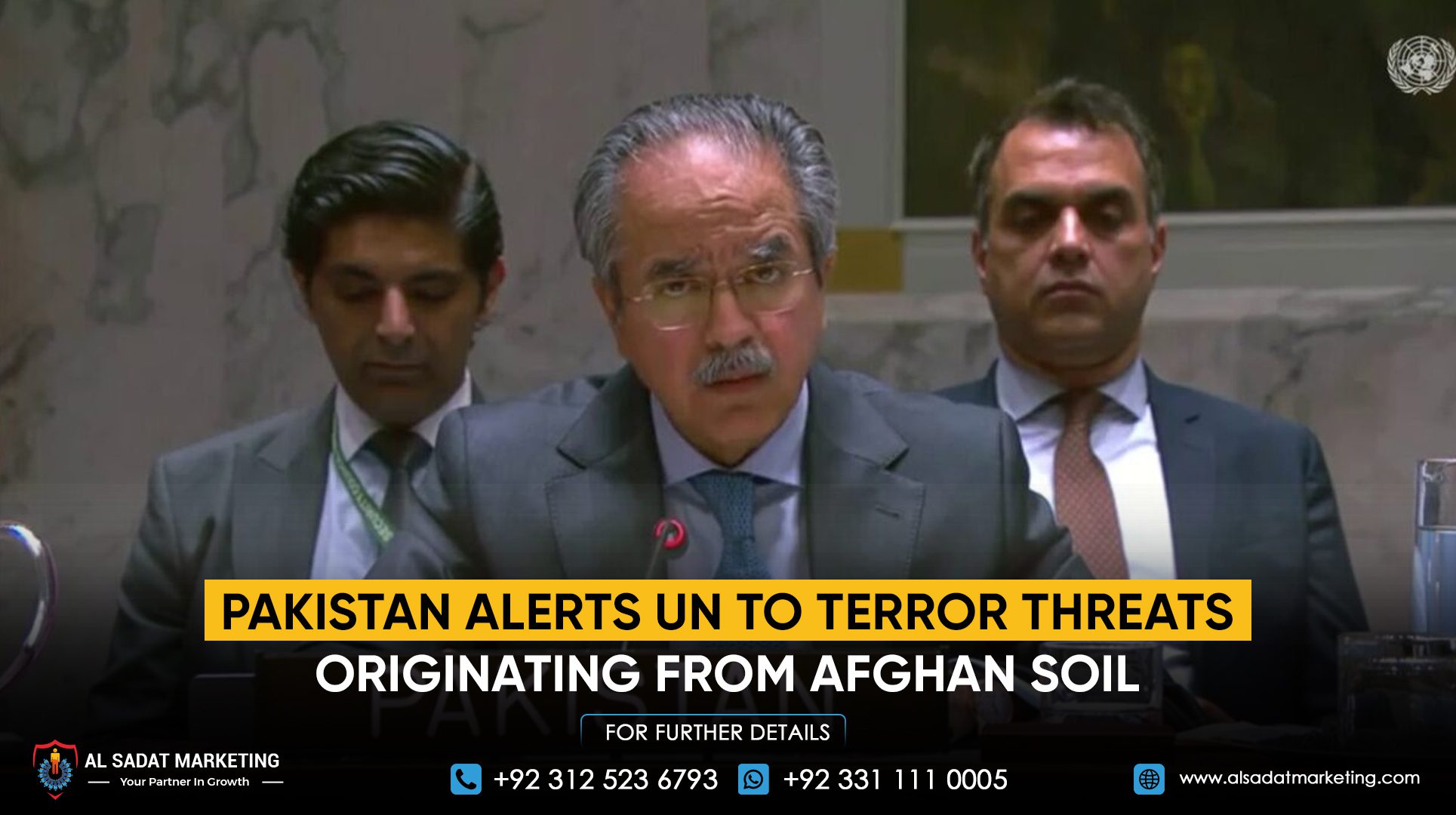Pakistan has warned the United Nations Security Council that terrorist groups operating from Afghan soil pose the most serious threat to its national security. The warning came during a Council session on Afghanistan, where Pakistan’s permanent representative to the UN, Ambassador Asim Iftikhar Ahmed, called for urgent global action against militant networks.
The envoy said groups including Al Qaeda, IS-Khorasan, the Tehreek-e-Taliban Pakistan (TTP), the East Turkestan Islamic Movement (ETIM), and Baloch insurgent outfits such as the BLA and Majeed Brigade were carrying out cross-border attacks with impunity. He said Pakistan had evidence of joint training, weapons trafficking, safe havens, and coordinated operations between these groups. According to him, more than 60 terrorist camps were being used to launch infiltrations into Pakistan, targeting civilians, security forces, and development projects.
Ambassador Ahmed also highlighted the digital dimension of the threat, saying nearly 70 propaganda accounts linked to Afghan IP addresses were actively spreading extremist content online. He urged closer cooperation between governments and social media platforms to dismantle these networks.
He informed the Council that Pakistan and China had asked the UN’s 1267 Sanctions Committee to formally designate the BLA and Majeed Brigade as terrorist organisations. He called on the Security Council to respond quickly, warning that inaction would embolden these groups further.
On the TTP, the envoy noted it was the largest UN-listed terrorist organisation in Afghanistan, with around 6,000 fighters. He said Pakistan’s security forces had blocked multiple infiltration attempts and seized advanced weapons left behind after the withdrawal of international forces. But these counter-terrorism operations had come at a high cost, with 12 Pakistani soldiers killed in a single attack this month.
Turning to Afghanistan’s broader situation, Ambassador Ahmed said four years of Taliban rule had ended decades of civil conflict but the country remained deeply troubled by sanctions, poverty, narcotics, and rights violations. He expressed concern that the UN’s 2025 Humanitarian Needs and Response Plan for Afghanistan had received only 27 percent of the $2.42 billion required.
He also reminded the Council that Pakistan has hosted millions of Afghan refugees for more than 40 years, often with limited international support. He called on the global community to share responsibility and extend greater assistance to both Pakistan and Afghanistan in addressing the ongoing crisis.










